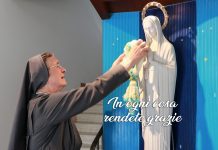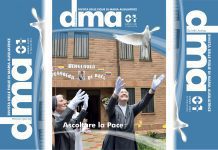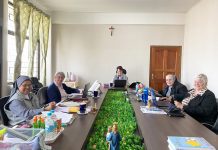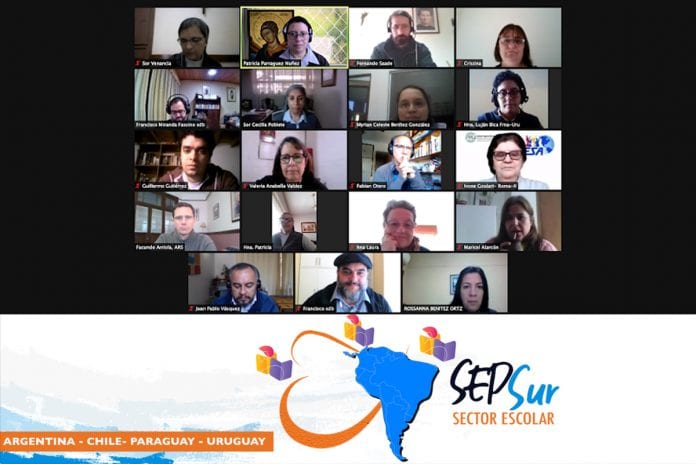America. The annual meeting of the School Sector SepSur took place on 7 and 8 May 2021, for the leaders of the Provinces of the Daughters of Mary Help of Christians of the Interprovincial Conference of the South Cone of Latin America – CICSAL and of the Salesians of Don Bosco in the Region CONOSUR. The aim of the online meeting was to share the richness of the mission between religious and laity, to revitalize the presence of FMA and SDB in the works of the Provinces.
At the meeting, addressed to the leaders of Schools and Youth Ministry of the Provinces of Argentina, Chile, Paraguay, and Uruguay, were present Sr. Ivone Goulart, collaborator of the FMA Youth Ministry Sector and Referent for the Salesian School of America and Fr. Claudio Cartes, of the SDB Youth Ministry Department and Referent for the Salesian School of America (ESA).
In the greeting, Sr. Ivone and Fr. Claudio invited the participants to consider the meeting as an opportunity for deepening, in the time of pandemic, recalling Don Bosco’s intuition that the mission of educating young people cannot be an action restricted to a small group of people. The educational mission implies Coordination for Communion as a style of animation (LOME 10, FMA) in the Church, where religious and laity work in synodality, sharing a mission and a common project. Education and evangelization take place in an educating community.
Sr. Patricia Parraguez, representative of the Central Commission ESA, presented the strategic plan for the three-year period 2021-2023, organized according to the 4 axes, with 3 lines of action and 2 specific activities for each of them. She also shared some results of the 2020 Survey applied to 300 Directors of the Region, to detect how schools are managed in the different countries, with respect to the managerial skills defined by the heads of the SepSur School Region.
Fr. Rafael Bejarano, SDB of the YM Dicastery, spoke on the shared mission between religious and laity and on the challenges it presents. Don Bosco’s pedagogical model was based on people and the richness of relationships. This requires enculturating the Preventive System in pastoral educational contexts, discerning together the paths that are required of Salesian works today in order to give a meaningful response, identifying the formation needs of people and valuing the evaluation process which allows for the constant monitoring of the mission and its challenges.
Starting from the documents of the Church, Sr. Laura Guisado, FMA of the Uruguayan Province of the Immaculate Conception (URU), contextualized the development of the shared mission, underlining the need to strengthen identity, vocation, and growth in faith, giving space to shared formation, to generate bonds made fruitful by the communion of diversities.
The group work organized by Rossanna Benítez, referent of Sepsur School Sector for the Salesians of Don Bosco and by Sr. Myriam Celeste Benitez, referent of CICSAL, was introduced through videos of religious and lay people who answered some questions. What is most appreciated in the work of religious and laity together? What challenges lie ahead on this path? What do you dream of for the shared mission? How can relations and the journey between religious and laity be enriched in the educational mission? Participants were divided into four virtual rooms to reflect, share, and answer the questions.
The SDB and FMA Delegates of Youth Ministry SepSur presented the Youth Ministry Booklet n. 43, whose theme is “Young people and synodality, with and from them. Dreams and challenges of Youth Ministry in Cono Sud.”
Sr. Sarah García, FMA, collaborator of YM the Sector, and Contact person for the Human Rights Office (IIMA) of Geneva, presented a project to set up a network of young people in defense of human rights. Guillermo Gutiérrez, from the FMA Uruguayan Province, will coordinate formation regarding this proposal.
Sr. Ivone and Fr. Claudio presented the Identity Charter of the Salesian Schools, developed by the ESA Central Commission following the IV Continental ESA Meeting held in 2017 in Medellín, Colombia.
Investing in education is contributing to world peace, to building more just and supportive societies: “in collaboration with the family, other subjects in charge of education are schools and universities (…).They are called to pass on a system of values based on the recognition of the dignity of each person, each linguistic, ethnic, and religious community, and each people, as well as the fundamental rights arising from that recognition. Education is one of the pillars of a more just and fraternal society.” (Message for the 54th World Day of Peace).




















